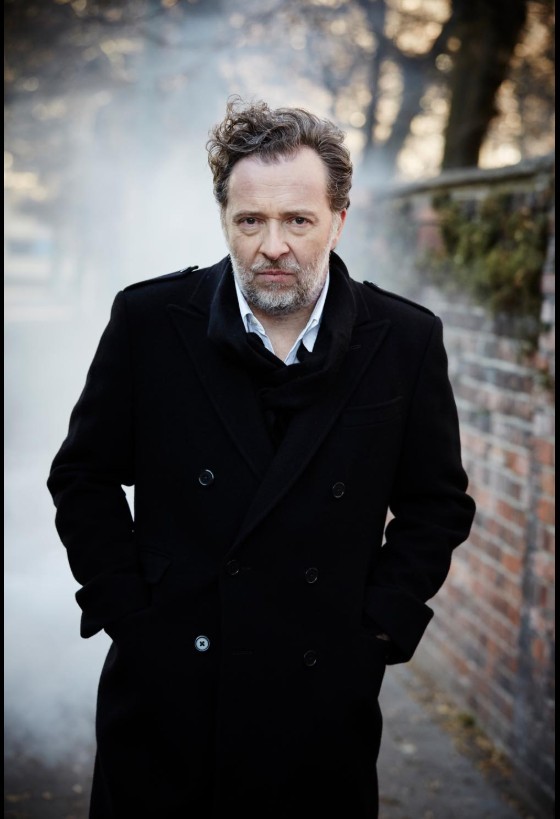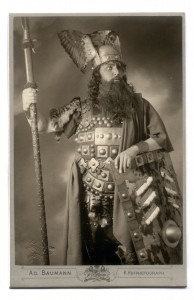
A traditional Wotan: Fritz Feinhals (1903)
In modern productions, the story often takes on the elements of modern war with the use of military uniforms, or takes on a modern setting with the Rhine maidens trudging alongside their terribly polluted river, and so on.
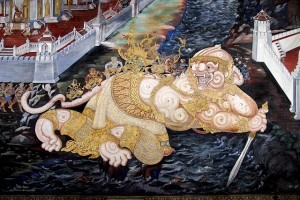
Mural from the Golden Palace, Bangkok
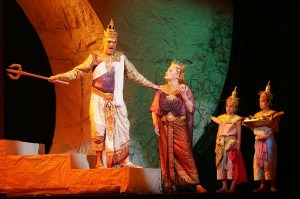
Wotan, Fricka, and servants, one holding the Apples of Immortality
Das Rheingold, opening of Scene 2
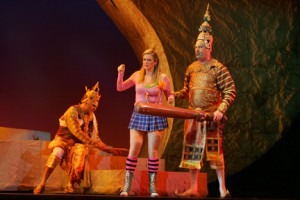
Freia with a giant, Wotan in the background
When Wotan (still in kingly garb) and Loge in his Hawaiian shirt descend to Nibelheim, one thing was immediately impressive: all the Nibelungs were played by children. This made Alberich (sung by Colin Morris) , dominating over them in gold rainiment (ok, a gold raincoat) even more frightening. He might be a dwarf, but he could loom over the little kids.
Woltan and Loge meet Alberich
Later in the scene, when Alberich has been defeated and he summons the Nibelungs to bring out all the gold, it’s not golden armor and weapons as in many western productions. They bring toaster ovens, and oil cans, and an iron…in other words, white goods for home use.
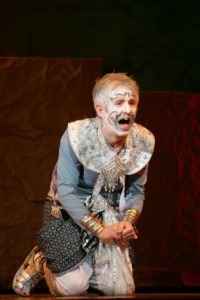
Colin Morris as Alberich
Freia’s redeemed, the gold is handed over, and then, as the gods ascend over the rainbow bridge to Valhalla, the golden vision that arises is the skyline of Bangkok. So much of the opera was filled with brief shocks that, at first, caused a laugh, but then was followed by a pause for thought. Taken as a grand metaphor, Somtow was showing in his opera what has been lost by Thailand following the gold and not its own internal strengths. In taking an opera out of its traditional western garb and dressing it in a Thai-Buddhist garment, Somtow was able to make us think a bit more deeply about what Wagner wrote and what can be made of it today.
Next: Die Walküre.

